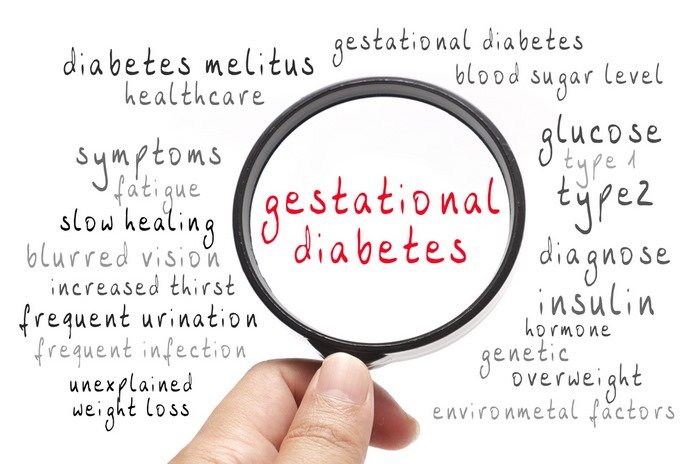Gestational Diabetes Causes

Researchers do not know why few women are having gestational diabetes yet and others do not. Excessive weight before pregnancy sometimes plays an important role. Several hormones normally work to maintain the blood glucose level in check. But during pregnancy, changes in hormone levels, making it difficult for your body to perform blood sugar effectively. This causes your blood glucose to increase. The female body during pregnancy produces special hormones to keep the pregnancy intact.
Gestational diabetes happens when the body is not able to make the additional insulin which is important for normal functioning during pregnancy. Insulin is the primary hormone which is produced in the pancreas and aids the body to utilize the extra glucose circulating in the blood for energy. The regulation of blood glucose levels is an important task of insulin and the non-effective functioning or poor availability of it leads to serious threat to the growing fetus and the mother as well.
During pregnancy, the female body also goes through certain changes including weight gain which also contributes to glucose intolerance. The cells of the body because of the changes in body during pregnancy are not able to use insulin effectively which is medically known as insulin resistance. All the pregnant females have some degree of insulin resistance during the later trimester of their pregnancy. Although most women during their pregnancy can produce enough insulin but there are some who cannot thus leading to the development of gestational diabetes.
However, the underlying cause might be different for each woman but following are some commonly surfacing causes of gestational diabetes:
- Being obese or overweight
Being obese or overweight than normal has a direct association with the development of gestational diabetes. Women who are obese or overweight might already suffer from insulin resistance when they are pregnant. In addition, gaining additional weight during pregnancy might also be a factor in causing gestational diabetes in women in the later months of their pregnancy.
- Family history
Having a close family member with a history of diabetes mellitus can also increase your chances of developing gestational diabetes once you become pregnant. Women with a family history of diabetes are more likely to develop gestational diabetes than other women which indicates that genes do play a significant role.
- Hormonal changes
Gestational diabetes can appear from hormonal changes and the manner our body converts nutrients into energy. The imbalance of metabolic processes due to changes in hormones during pregnancy leads to gestational diabetes as well. A hormone known as insulin breaks down the glucose from the food you eat and delivers it to body cells. Insulin maintains a constant level of glucose in the body at all times. However, if insulin is not working effectively or we are not having enough glucose, the glucose in blood builds up and results in diabetes. Hormones can interfere with the optimum functioning of insulin during pregnancy in women. As a result, insulin might not regulate the blood sugar levels like it must which might result in gestational diabetes. (25)
